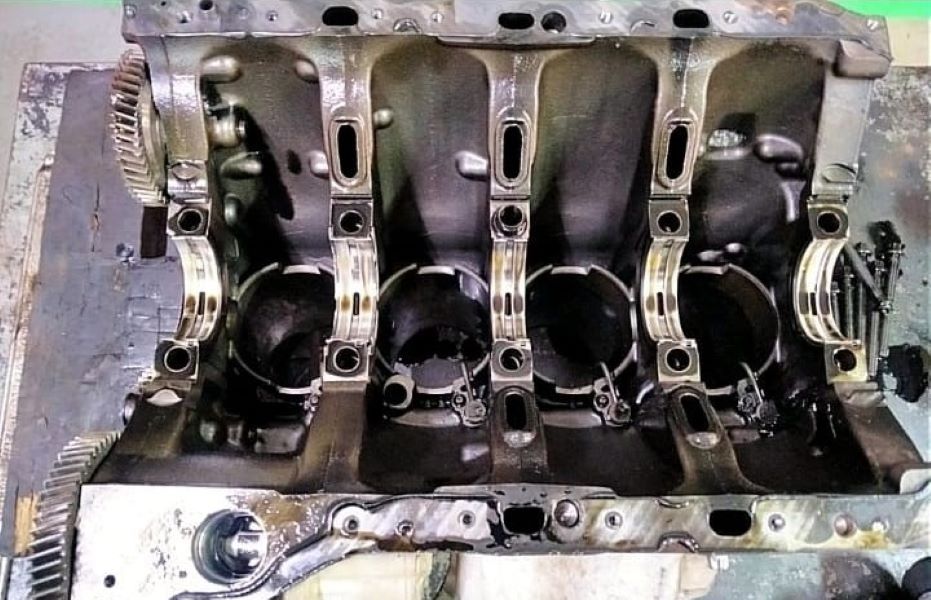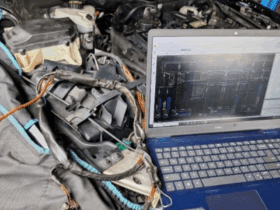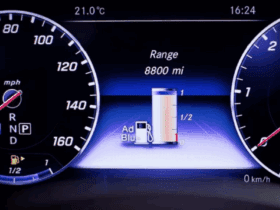Table of Contents
Excessive Oil Consumption in Mercedes-Benz GLE W166: A Case Study of the GLE 250d OM651 Engine
Vehicle: Mercedes-Benz GLE W166
Vehicle Type: Mercedes-Benz GLE 250d W166 (Diesel Engine)
Engine Type: OM651
Customer Complaint: Excessive oil consumption
Excessive oil consumption is a recurring problem that many vehicle owners encounter. In this article, we will explore this issue through a case study of the Mercedes-Benz GLE 250d W166 equipped with the OM651 Diesel Engine. This model reported continuous warnings to add engine oil, typically after driving around 1,000 kilometers.
We will investigate the causes, workshop findings, and solutions to excessive oil consumption, offering valuable insights for enthusiasts and technicians alike.
Symptoms of Excessive Oil Consumption
In this case study, the customer complained about receiving repeated messages to “add engine oil” on the Multi-Information Display (MID) after driving approximately 1,000 km. This symptom indicates that the engine is consuming an abnormal amount of oil. If left unresolved, excessive oil consumption can result in poor engine performance and potential engine failure.
Common symptoms of excessive oil consumption include:
- Frequent oil warning lights or messages.
- Noticeable drops in oil levels between service intervals.
- Blue or white smoke from the exhaust.
- Poor fuel economy and reduced engine efficiency.
Workshop Inspection and Findings
Upon receiving the vehicle at the workshop, the technicians performed a thorough diagnostic check to identify the root cause of the excessive oil consumption. Here’s what they discovered:

1. Compression Test Results:
- The engine’s compression was lower than expected, indicating internal wear. Compression issues often hint at poor sealing of the combustion chamber, allowing oil to escape or burn during operation.

2. Piston Ring Wear:
- The piston rings showed significant wear. Worn piston rings fail to seal the combustion chamber effectively, leading to oil entering the combustion process and being burned along with fuel.

3. Main Bearing Metal Wear:
- The main bearing metal was also found to be worn. This component provides smooth rotation of the crankshaft, and excessive wear can increase oil clearance, causing oil leakage or improper lubrication.


4. Valve Leak:
- A leak was detected in the engine valves. Valve leaks can allow oil to seep into the combustion chamber or exhaust system, further contributing to oil consumption.
Causes of Excessive Oil Consumption in the OM651 Engine
Several factors can lead to excessive oil consumption in the OM651 engine, including:
- Worn Piston Rings: When the piston rings lose their sealing ability, oil can escape into the combustion chamber and burn off.
- Valve Seal Wear: Aging valve seals can allow oil to leak past the valve stems into the combustion chamber, causing oil consumption.
- Worn Bearings: Excess clearance in the bearings can allow oil to escape, reducing the oil level over time.
- Long Service Intervals: Extended oil change intervals can degrade oil quality, accelerating engine component wear.
Rectification: How the Workshop Solved the Problem
To address the excessive oil consumption, the workshop performed a full engine overhaul. Below are the specific repair steps:
1. Overhaul Engine:
- The engine was dismantled to access critical components such as the piston rings, main bearings, and valves. An overhaul ensures that all worn parts are either repaired or replaced.
2. Valve Seat Rematching:
- The technicians rematched the valve seats to ensure proper sealing. This prevents oil from leaking past the valves into the combustion chamber.
3. Replacement of Worn Parts:
- Piston Rings: Replacing the piston rings restored the sealing of the combustion chamber.
- Main Bearing Metal: New bearings ensured proper clearance and smoother engine operation.
- Valve Seals: Replacing the valve seals eliminated oil leakage through the valves.
- Gasket Set: Fresh gaskets ensured all joints were properly sealed, preventing future leaks.
4. Replacing Disposable Parts:
- During engine disassembly, all disposable parts such as filters, fluids, and seals were replaced to ensure optimal engine performance post-repair.

Preventing Excessive Oil Consumption
To minimize the risk of excessive oil consumption in the future, vehicle owners should adopt the following practices:
- Regular Oil Changes: Follow the recommended oil change intervals to maintain oil quality and protect engine components.
- Monitor Oil Levels: Periodically check oil levels and top up if necessary to avoid engine damage.
- Use High-Quality Engine Oil: Ensure the oil used meets the specifications recommended by Mercedes-Benz for the OM651 engine.
- Address Warning Signs Promptly: If the “add engine oil” message appears frequently, have the engine inspected without delay.
- Adopt Preventive Maintenance: Regular servicing and inspections help catch issues early, preventing costly repairs.
Conclusion
Excessive oil consumption is a common issue that can affect the performance and longevity of the OM651 engine in the Mercedes-Benz GLE 250d W166. As demonstrated in this case study, the root causes included piston ring wear, bearing metal wear, and valve leaks. Through a comprehensive engine overhaul and the replacement of key components, the workshop successfully resolved the problem.
For owners of the GLE W166 experiencing similar symptoms, it is essential to address excessive oil consumption promptly to prevent long-term engine damage. Following the preventive tips outlined in this article can also help maintain your engine’s health and avoid costly repairs in the future.






Leave a Reply